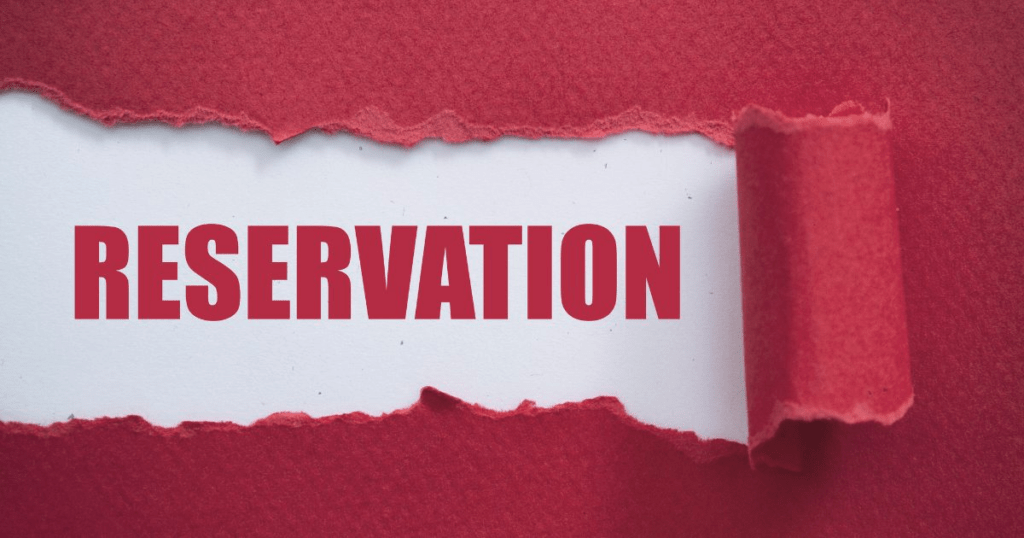
Image source: https://theleaflet.in/why-are-state-laws-enabling-domicile-reservation-in-the-private-sector-unconstitutional/
This Article is written by Supriya, 1st year student of B.A.LL.B (HONS) student of S.S Khanna Girls’ Degree College, UoA
Abstract-
The system of reservation is unique to India but in other nation like United States they are called as affirmative actions, which are specifically limited for the Native India Tribes , but in their system they provided them limited seclusion with allotment of specified land. The American affirmative action are results of conflict and some severe wars between native Indian and white people after which leads to the enactment of many legislation for the betterment of native Indians, but on surrender options. They are called as anti discrimination because government are enacting specific statues and law for their betterment and protection.
But in Indian Constitution do not have such type of system, to treat the Indian Hindu Communities old caste system and ill treatment towards specific castes, and to ensure their betterment and upliftment and to ensure their participation in the construction of modern India. The constitution framers enacted this Compensatory Damages Employment Discrimination system for Backward class and Tribal Community , through Equality Provision’s in Indian Constitution.
Compensatory Discrimination eeoc is a term coined for the policy or programs that give preference to a group or groups of people with a stated goal of countering and compensating the past or ongoing atrocities, excesses, injustice, or discrimination of any sort against them. This measure has been adopted for uplifting the weaker sections of a society by several countries including India, USA, Belgium, Brazil, and even China. In USA, it is called as Affirmative Action. A direct application of compensatory discrimination can be seen in reservation of seats in educational institutions, reservation of vacancies in public service,
Introduction –
“Compensatory damages Employment discrimination system ” refers to when the state shall not discriminate against the citizens on grounds of religion , caste, sex, race, place or birth or any of them. Article 16(2) of the Indian Constitution prohibits discrimination on the ground, inter-alia, of religion, race, caste, place of birth, residence and permits an exception to be made in the matter of reservation in favor of backward classes of citizens.This measure has been adopted for uplifting the weaker sections of society by several countries including India, the USA, Belgium, Brazil, and even China. In the USA, it is called Affirmative Action. A direct application of compensatory discrimination can be seen in the reservation of seats in educational institutions, the reservation of vacancies in public service, and the preference for such groups in government contracts.
Purpose-
For a society as a whole to grow it is necessary that every section of the society take part in the development of the society. At the same time, every section should also receive the benefits of the growth. A society can never grow if several sections of society are repressed or exploited. Every section of society should get a sense of hope that they have a better future ahead. Further, it is also true that historically several sections of our society have been discriminated against and there exists a prejudice against them in the socially uplifted sections. To bring such downtrodden sections of the society to the same or comparable level, the society as a whole must take special efforts and measures, which is exactly what the purpose of compensatory discrimination is. Another important objective of compensatory discrimination is the reduction in social discrimination existing in the minds of people to the extent that the elite of the society reflects every section of the society comparably thereby bringing about the end of compensatory discrimination itself.
Reservation and Quota System in Indian Constitution-
The ‘doctrine of equality’, as collectively enshrined in Articles 14 to 18, happens to be the principal basis for the creation of a reasonable classification whereunder ‘affirmative action’, be it legislative or executive, is authorised to be undertaken. The constitutional Courts too, precedent by precedent, have constructively contributed to the evolution of what we may term as ‘reservation jurisprudence’.
The Constitution of India has about two dozen Articles providing for compensatory or special treatment for disadvantaged citizens or for protecting them against discrimination
The Need for Reservation- Compensatory Discrimination-
It is evident that the normal process of development benefits only that section of society which already possesses land, education, and social status/respect.
For those who have none of these, or are deprived of any of these, there was the task of making sure that they, who had been unable to enjoy these rights due to myriad reasons, were given special facilities, privileges and encouragement so that they could participate as equals in the mainstream of socio-economic system, taking them to the path of Liberty and Justice and thereby promoting Fraternity among all the citizens, assuring the dignity of the individual.
Geometrical equality therefore requires rational classification. This principle forms the basis of the guarantee of equality as enshrined and administered in terms ofArt.14of the constitution. The problem becomes all the more acute where the guarantee of equality is fastened upon a society which is usually divided among groups with varying potential of power, privilege and prestige. Classification here, has not to meet only the needs of physical ends and psychological differences but also of tradition generated attitudes, patterns and divisions.
This solution aspect of equality lies in the case of the constitutional provisions relating to protective discrimination in favor of backward classes. Art.15 (4) and16 (4)envisage specific departures from the norms of equality to fasten the educational and job needs of the weaker sections of society. They are exceptions from apparent formula of equality to achieve real equality.
Art. 1 (4) reads as: the state is not prevented from making any special provisions for the advancement of any socially and educationally backward classes of citizens or for the scheduled castes and scheduled tribes. Article 16 (4) reads: The state may make provisions for reservation of appointments or posts in favor of any backward class of citizens which in the opinion of the state, is not adequately represented in the services under the state.
The term backward classes has been used in the same sense as in Art. 15( 4) and includes listed gentries and listed lines. Those vittles form the crux of the egalitarian resolution sought to be patronized by the framers of the constitution through the medium of abecedarian right of equivalency. They represent the positive dimension of the claim of equivalency which enjoying the state’ to do’ rather than enjoin it from doing commodity.
This Composition is a modest attempt to examine the functioning of the indigenous vittles for privileged treatment of backward classes in the light of the indigenous vision for their upliftment.
Position of the Depressed Classes in the history The Indian Round Table Conference-
Ramsay MacDonald, the also Prime Minister of England gave an statement before the final grand session of the Indian Round Table Conference in 1931, said that there’s still difference of opinion for case as to the composition and powers of the Federal Legislature, and I lament that owing to the absence of a agreement of the crucial question of how to guard nonages under a responsible central Government, the conference has been unfit to bandy effectively the nature of the Federal superintendent and its relationship with the Legislature.
But a decision of the collaborative problem which provides only for representation of the communities in the council isn’t enough to secure what I may call natural rights, when similar vittles have been made, nonages will still remain nonages, and the constitution must thus contain vittles which will give all creeds and classes a due sense of security that the principle of maturity government isn’t to be employed to their moral or material disadvantage in the body politic.
Karachi Resolution-
The socio- profitable provision in the Karachi Resolution went on to impact the Constituent Assembly in drawing up Part IV of the IndianConstitution.the Directive Principles of State Policy. The Congress was of opinion that in order to end the exploitation of the millions, political freedom must include real profitable freedom of the starving millions. thus, so that the millions may appreciate what Swaraj as conceived by the Congress will mean to them, it’s desirable to state the position of the Congress in a manner fluently understood by them.
The Congress thus declares that any constitution that may be agreed to on its behalf, should include abecedarian rights, religious impartiality, Labour to be freed from serfdom, Protection of women workers, Prohibition against employment of children of academy going age in manufactories, right of labour to form unions to cover their interests with suitable ministry for agreement of controversies by arbitration and free Primary education.
Special claims of the depressed classes The Constitution shall declare invalid any custom or operation by which any penalty or disadvantage or disability is assessed upon or any demarcation is made against any subject of the state in regard to the enjoyment of communal rights on account of untouchability. Generous treatment in the matter of reclamation to public service and the opening of investiture in the police and Military service. The Depressed classes in the Punjab shall have the benefit of the Punjab Land disaffection Act extended to them and numerous other special claims were made in order to cover the interest of backward claclasses.
Conclusion –
Who can deny that entry into government services is at formerly a honor and an occasion for swinging profitable development and social status to any backward people? supposedly, keeping in view this important factor, our constitution provides under Art. 335 that the claimsinter-alias, of the member, of the listed gentries shall be taken into consideration, constantly with the conservation of effectiveness of administrations, in the timber of movables to services and posts with respect to the affairs of the union or of a state.supposedly, one can not develop as a nation when large section of the society remains far before in the race of development and, among other effects, isn’t enabled to enjoy equivalency of occasion granted as a abecedarian right to all citizens of India in the field of employment, under composition 16( 1) of the Constitution. This can be done by furnishing them all possible props and supports to enable them, to run shoulder to shoulder with their further fortunately placed lines, in the race of public development. Unless this verity becomes clear to all concerned, we can not go to give equal openings, inter alia, in the matter of furnishing employment to all suchlike. Let us hope that the authorities concerned will rise to the occasion and insure an accelerated input of these people in government services and posts, by plugging all Loop- holes which have been refocused out in the colorful periodic Reports of the Commissioner for Scheduled gentries and slated lines.
References –
https://www.casemine.com/search/in/compensatory%2Bdiscrimination




0 Comments